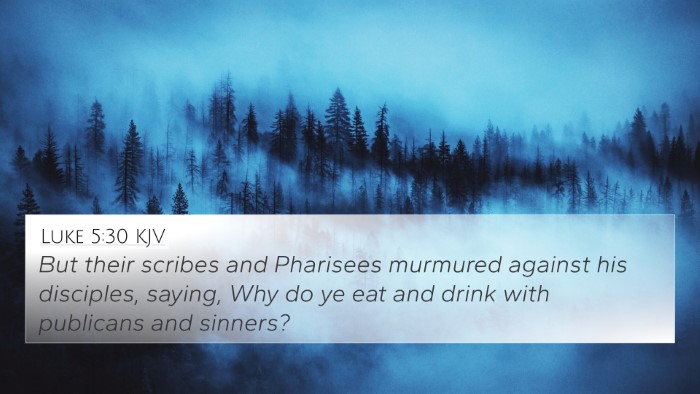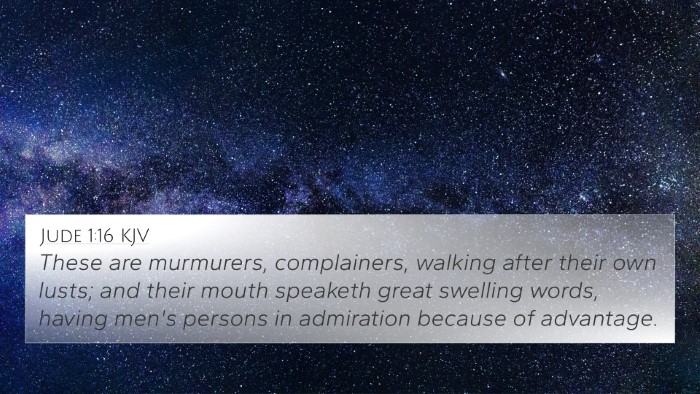Understanding Matthew 20:11
Bible Verse: "And when they had received it, they murmured against the goodman of the house."
Summary of Meaning
This verse captures the reaction of the laborers hired later in the day who received the same wages as those who had worked longer. Their complaint reveals themes of fairness, entitlement, and the nature of God's grace. In this parable told by Jesus, the story emphasizes that God's generosity is not bound by human expectations or notions of equity.
Contextual Analysis
In the parable of the laborers in the vineyard (Matthew 20:1-16), Jesus illustrates the Kingdom of Heaven's values. The landowner represents God, who dispenses grace generously, irrespective of human labor or merit. This radical generosity often challenges societal norms regarding fairness and equity.
Commentary Insights
- Matthew Henry: Henry emphasizes that the laborers' complaint reflects a common human flaw—envy and resentment when witnessing the grace extended to others. They were focused on their perceived merit rather than the generosity of the one who employed them.
- Albert Barnes: Barnes points out that the landowner's actions promulgate a critical lesson about God's kingdom—that it is not based on human standards. God's grace is sovereign, and He has the right to extend it as He chooses, regardless of our judgment.
- Adam Clarke: Clarke discusses the significance of the wages given to those who worked fewer hours, noting that this parable addresses the astonishment and complaints arising from a misunderstanding of grace. He identifies that it speaks to both expected and unexpected recipients of divine mercy.
Thematic Connections
This verse draws connections across numerous biblical themes:
- Grace vs. Works: The parable highlights the concept of divine grace over human works. (Ephesians 2:8-9)
- God's Sovereignty: It illustrates God's ultimate authority in administering His blessings. (Romans 9:15-16)
- Equality in Christ: Affirms that all believers are equal in Christ regardless of their backgrounds or spiritual works. (Galatians 3:28)
- Mercy: The laborers’ complaints mirror humanity's misunderstanding of divine mercy. (Luke 6:36)
- Judgment: Engaging with God's grace prompts self-reflection about judgments we may impose on others. (James 4:12)
Bible Verse Cross-References
The following verses relate closely to the themes presented in Matthew 20:11:
- Matthew 19:30 - "But many who are first will be last, and the last first."
- Romans 12:3 - "For by the grace given me I say to every one of you: Do not think of yourself more highly than you ought."
- 1 Timothy 6:17 - "Command those who are rich in this present world not to be arrogant nor to put their hope in wealth..."
- 2 Corinthians 9:8 - "And God is able to bless you abundantly, so that in all things at all times, having all that you need, you will abound in every good work."
- Philippians 2:3 - "Do nothing out of selfish ambition or vain conceit."
- James 2:5 - "Listen, my dear brothers and sisters: Has not God chosen those who are poor in the eyes of the world to be rich in faith?"
- Luke 14:11 - "For all those who exalt themselves will be humbled, and those who humble themselves will be exalted."
Cross-Referencing Biblical Texts
To better understand Matthew 20:11, utilizing tools for Bible cross-referencing can provide greater insights. These tools help illustrate:
- Bible Concordance: Use this to find terms and themes related to 'grace' and 'mercy.'
- Bible Cross-Reference Guide: Identifies connections between the parable's themes and other scripture.
- Comprehensive Bible Cross-Reference Materials: Essential for deeper studies into scriptural themes.
Conclusion
The murmurings of the laborers in Matthew 20:11 reveal critical insights into human nature and divine grace. Through a comparative analysis of related verses and thoughtful cross-referencing, one can grasp the expansive nature of God's generosity. The implications of this verse challenge readers to reflect upon their own perceptions of fairness and to embrace the radical grace of God that transcends the limitations of human judgment.











